Hat «Swiss Finance» Zukunft?
Video Playlist
Presseschau
Noch bevor die Münzen erfunden wurden, nutzten Menschen ein System, das mit der Blockchain-Technologie vergleichbar ist NZZ vom 17.04.2018 lesen
Ermotti says 'Swissness' is key for UBS staying No.1 in wealth Bloomberg vom 12.04.2018 read
Sergio Ermotti und sein Bekenntnis zur Schweiz Finnews.ch vom 13.04.2018 lesen
Insight
How to keep Swiss finance in the game
New technologies, new services, new client needs – is the financial market at a historic turning point? And if so, what are the implications for Swiss finance? At this year’s UBS Center Podium economic historians and experts from the financial sector were divided on the question about the significance of today’s changes in finance.
Read our full Insight on How to keep Swiss finance in the game by Maura Wyler, Head of Communication.
How to keep Swiss finance in the game
New technologies, new services, new client needs – is the financial market at a historic turning point? And if so, what are the implications for Swiss finance? At this year’s UBS Center Podium economic historians and experts from the financial sector were divided on the question about the significance of today’s changes in finance.
Read our full Insight on How to keep Swiss finance in the game by Maura Wyler, Head of Communication.
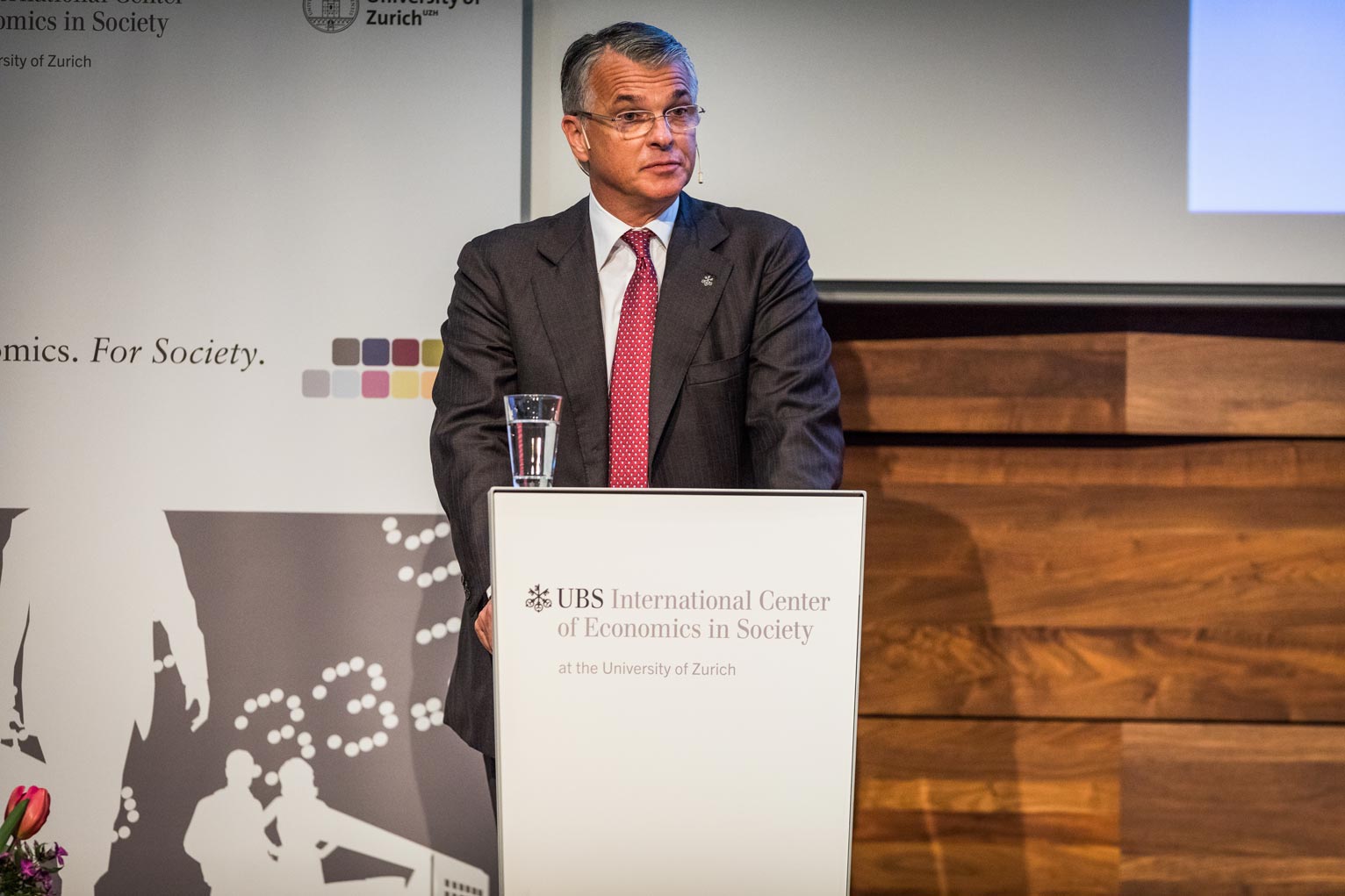
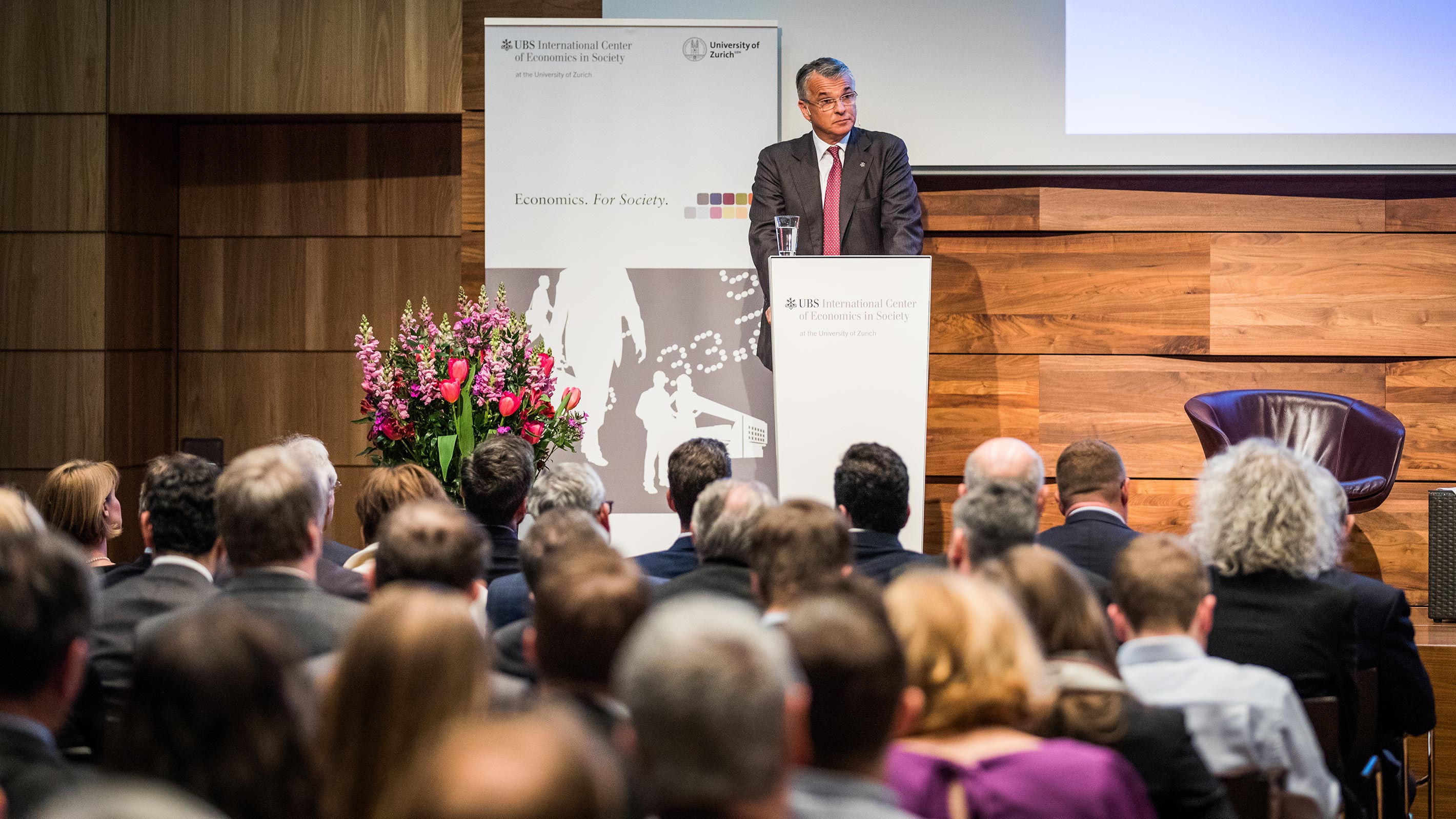
Intro
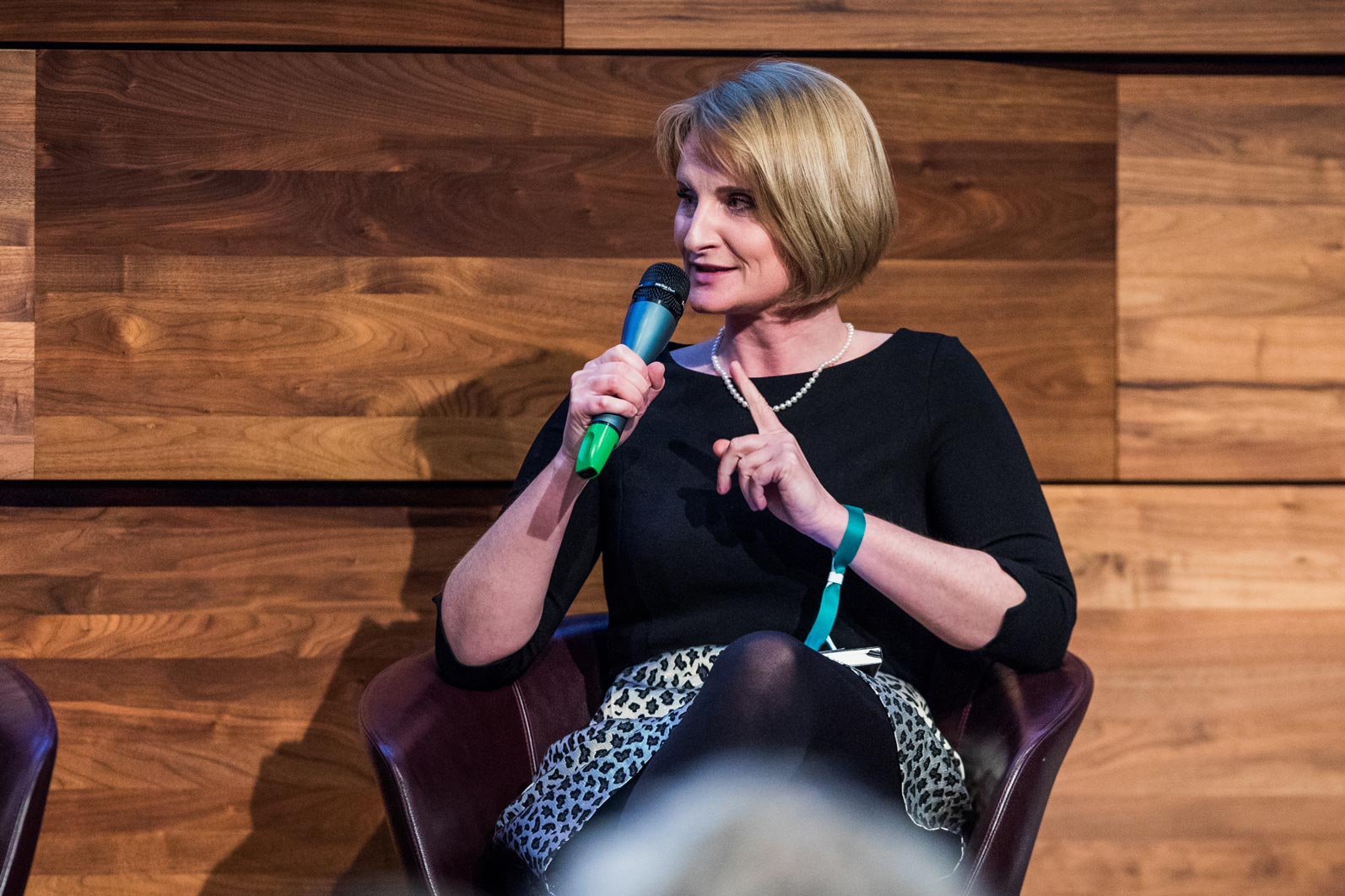
Beobachter und Branchenvertreter sehen den Finanzsektor vor einer historischen Zäsur, wo nur überlebt, wer sein Geschäftsmodell grundlegend überdenkt. Stimmt diese Diagnose? Und wenn ja, was heisst das für den Finanzplatz Schweiz, welcher einen wesentlichen Beitrag zur gesamtwirtschaftlichen Wertschöpfung und Beschäftigung leistet?
Im ersten Teil der Veranstaltung ging es um eine Einschätzung dazu, ob und, wenn ja, in welcher Form die aktuellen technologischen und regulatorischen Umwälzungen die Finanzbranche tatsächlich grundsätzlich verändern werden. William N. Goetzmann von der Universität Yale ist dazu in seinem Keynote-Referat auch der Frage nachgegangen, wie tief die Zäsur im historischen Vergleich ausfallen dürfte.
Im zweiten Teil wurde erörtert, wie gut der Finanzplatz Schweiz in diesem Veränderungsprozess positioniert ist, ob das herkömmliche «Swiss Banking» mittelfristig überhaupt noch eine Perspektive hat und was vielversprechende Strategien wären, um vom technologischen Wandel zu profitieren und gestärkt aus dem Umbruch hervorzugehen. Das Keynote-Referat hierzu wurde von Sergio P. Ermotti (UBS Group AG) gehalten.
Beobachter und Branchenvertreter sehen den Finanzsektor vor einer historischen Zäsur, wo nur überlebt, wer sein Geschäftsmodell grundlegend überdenkt. Stimmt diese Diagnose? Und wenn ja, was heisst das für den Finanzplatz Schweiz, welcher einen wesentlichen Beitrag zur gesamtwirtschaftlichen Wertschöpfung und Beschäftigung leistet?
Im ersten Teil der Veranstaltung ging es um eine Einschätzung dazu, ob und, wenn ja, in welcher Form die aktuellen technologischen und regulatorischen Umwälzungen die Finanzbranche tatsächlich grundsätzlich verändern werden. William N. Goetzmann von der Universität Yale ist dazu in seinem Keynote-Referat auch der Frage nachgegangen, wie tief die Zäsur im historischen Vergleich ausfallen dürfte.
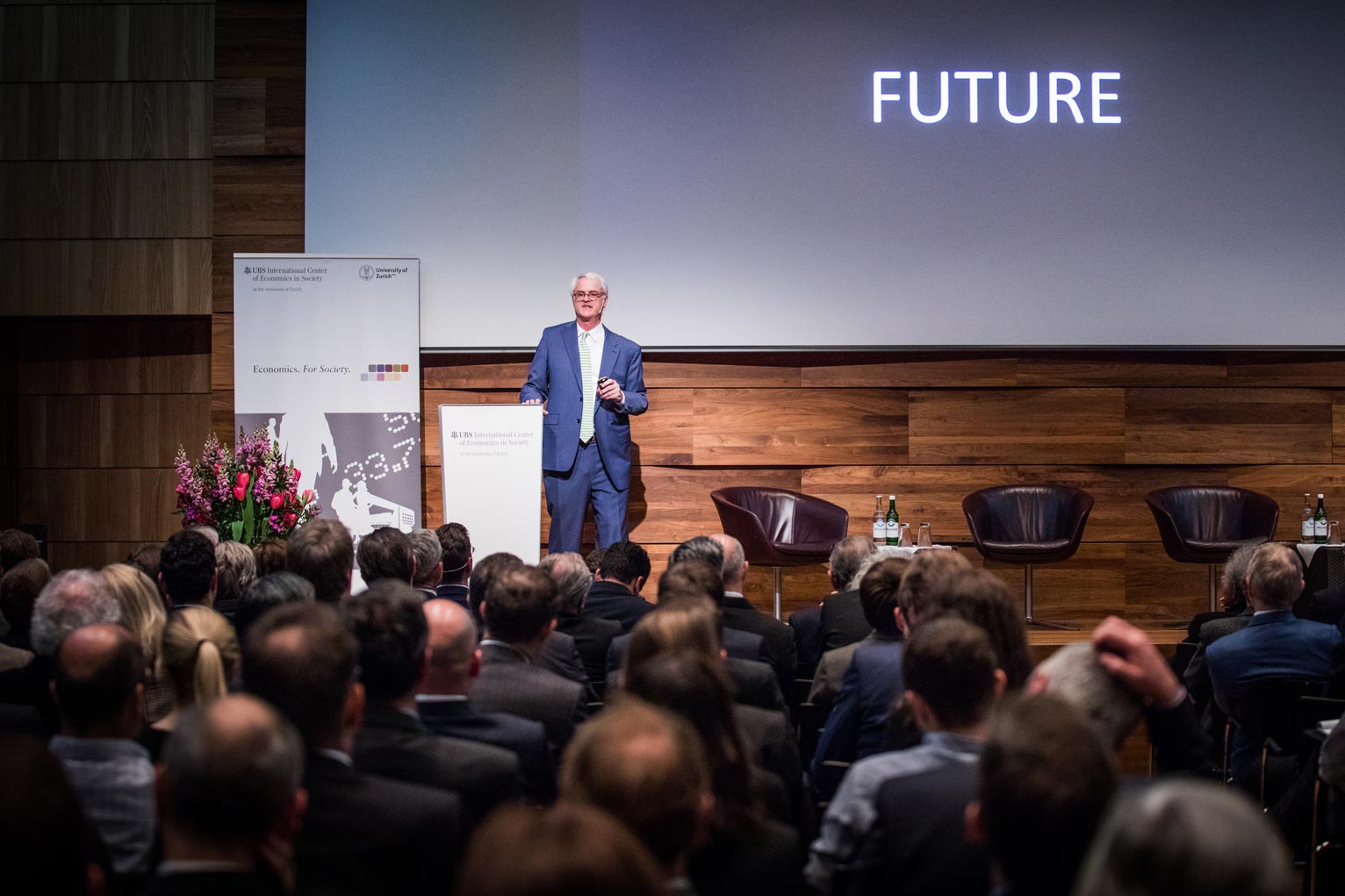
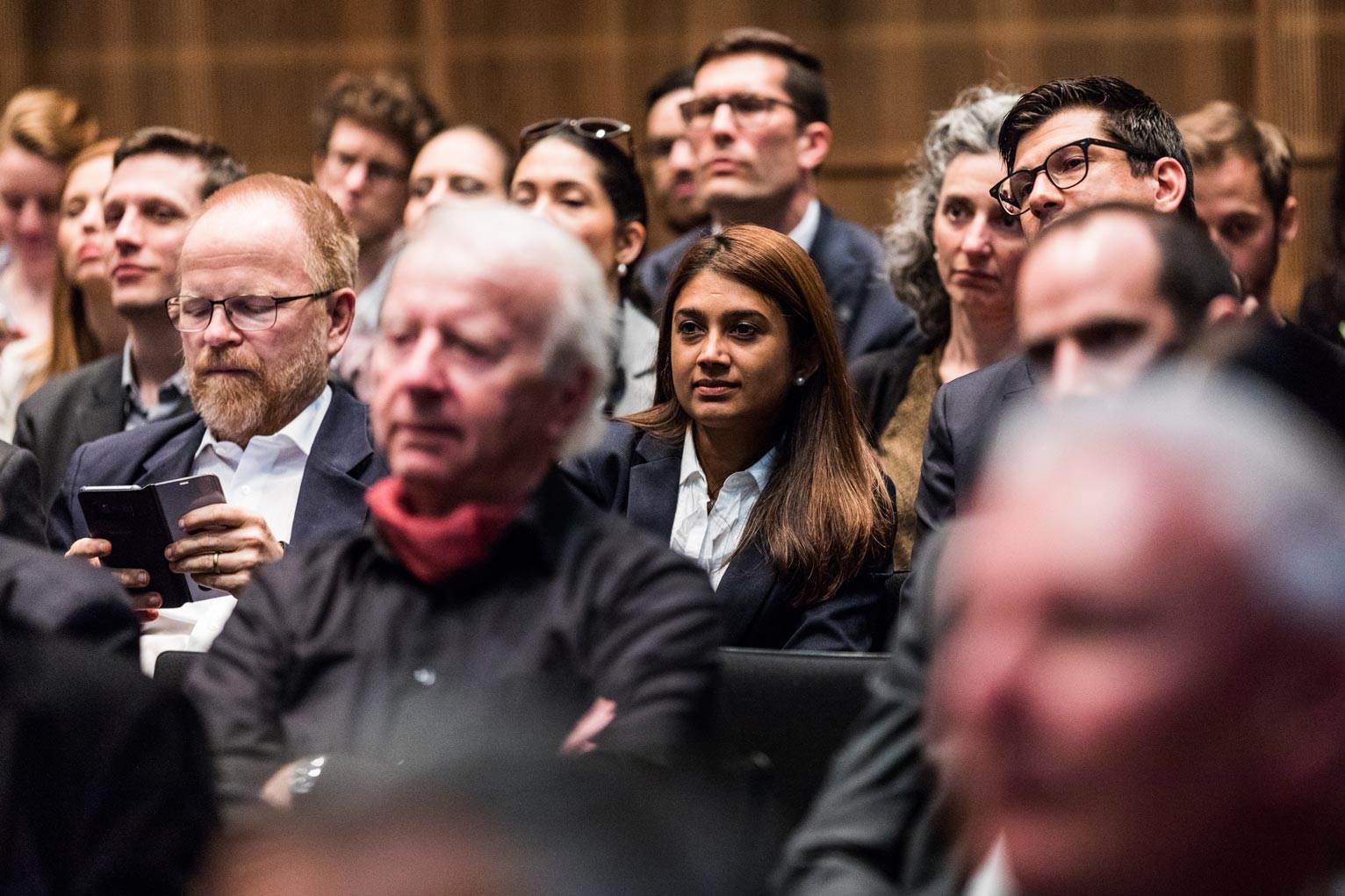

Feedback
Fotogalerie
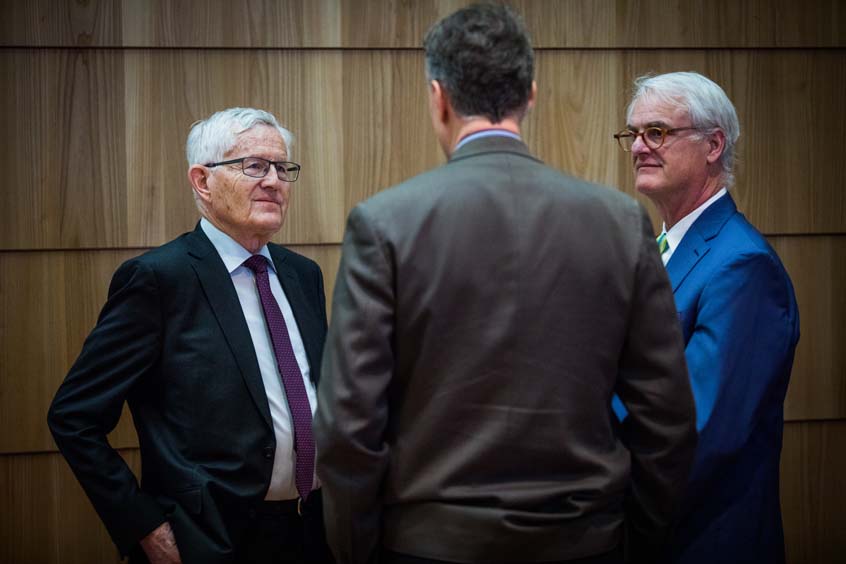
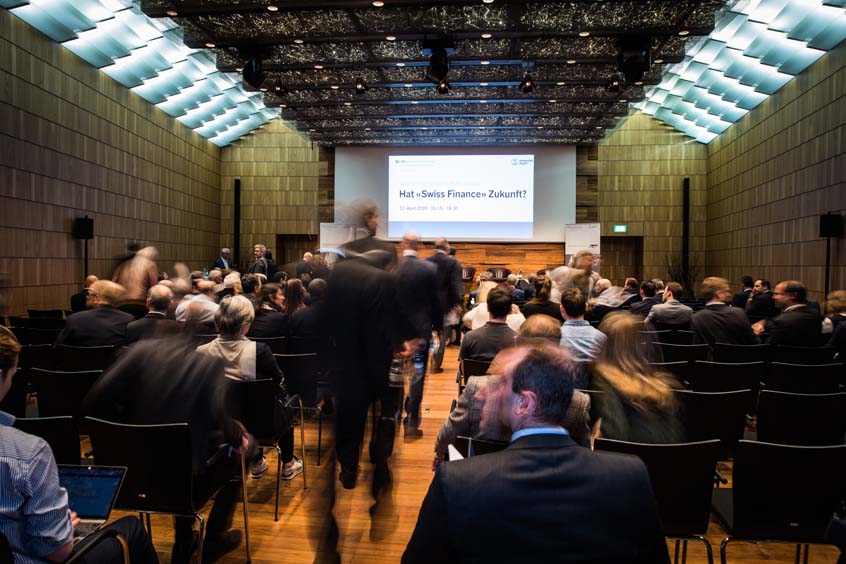
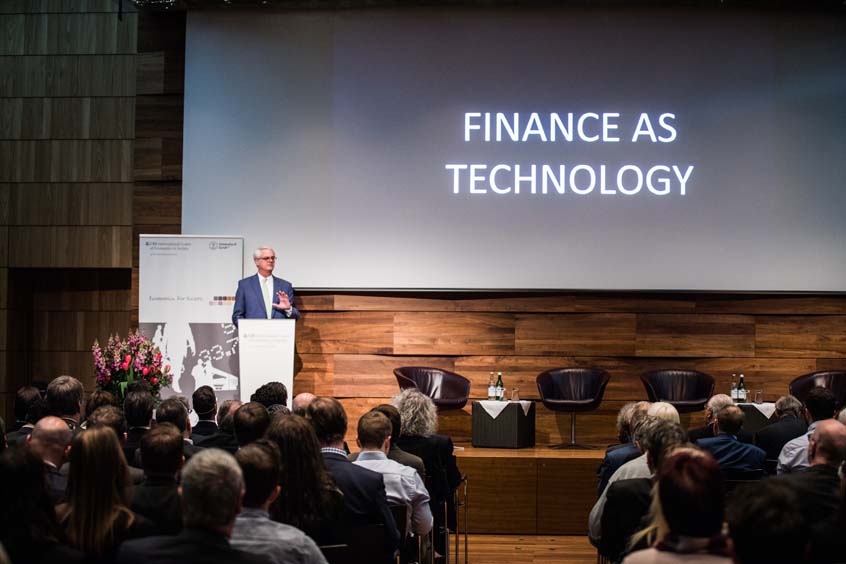

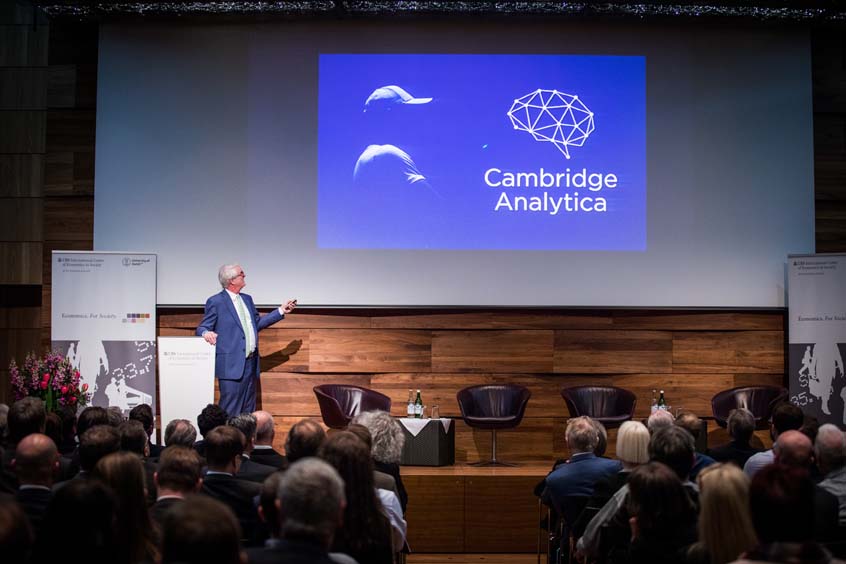
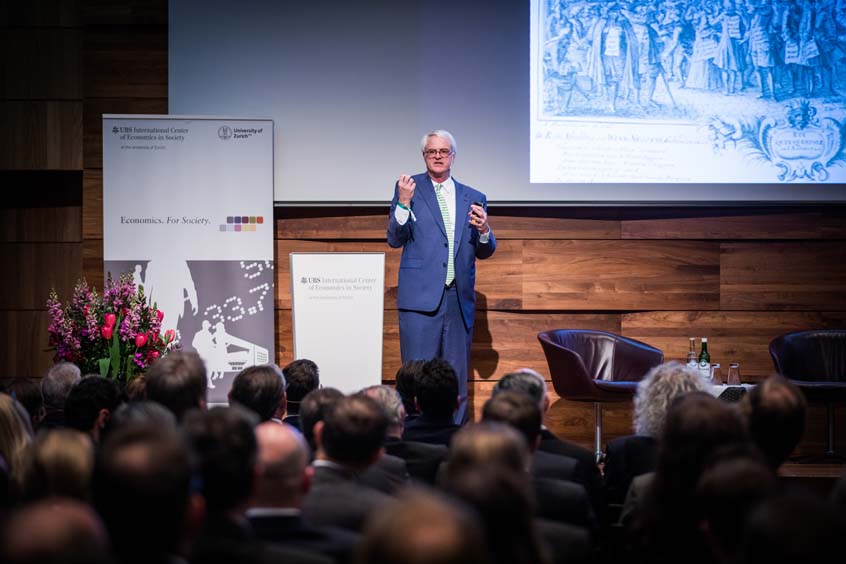
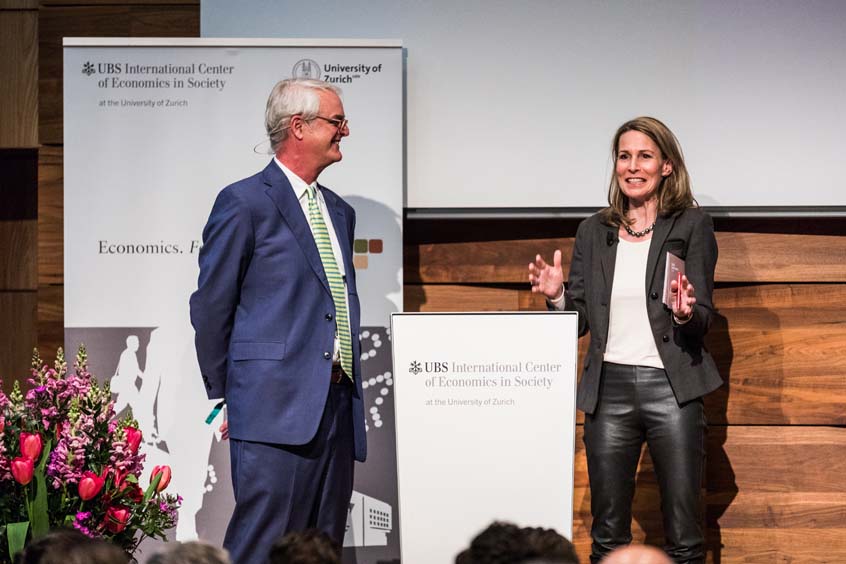
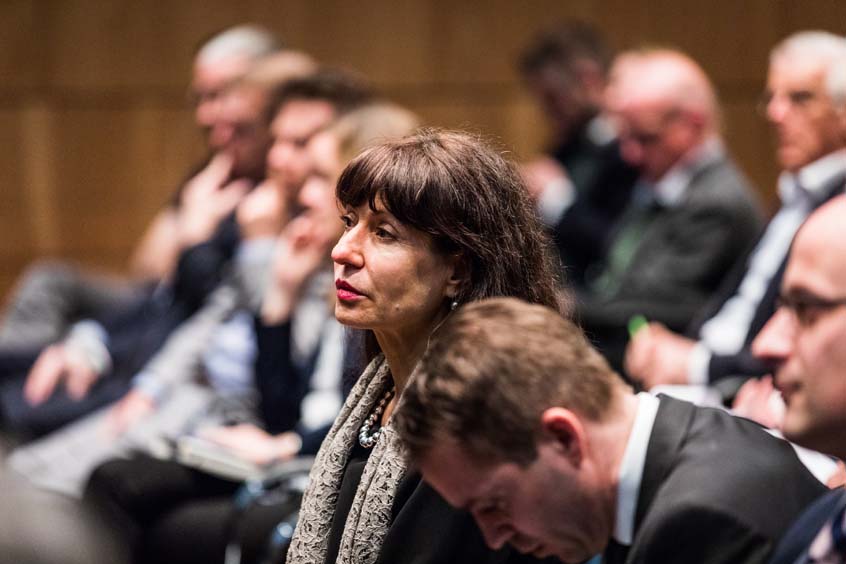
Literatur
William N. Goetzmann Money changes everything ausleihen
Joachim Voth Prometheus shackled ausleihen
Oliver Everling Finanzdienstleister der nächsten Generation ausleihen
John Armour Principles of financial regulation ausleihen
Digital transformation Thema in der Schlagwortsuche recherchieren
Fintech Thema in der Schlagwortsuche recherchieren
Program
Speakers
Marc P. Bernegger ist ein Serienunternehmer im Bereich Web, Fintech und Kryptowährungen. Er ist Mitgründer der Internetplattform usgang.ch, welche 2008 von der Axel Springer SE erworben wurde und heute im Besitz der Energy Schweiz AG ist. Bernegger ist ebenfalls Mitgründer der Ticketing-Plattform amiando, die 2010 von XING gekauft wurde. Im selben Jahr ernannte ihn das WEF zum „Global Technology Pioneer“. Seither ist Marc als Fintech-Investor aktiv. Er ist Mitglied des Advisory Boards von FinLeap, Mitgründer von Finance 2.0 und gehört dem Verwaltungsrat von diversen Unternehmungen an, wie zum Beispiel Falcon Private Bank und Crypto Finance.
Dr. Daniel Diemers studierte Wirtschaftswissenschaften an der Universität St. Gallen HSG und hat 2001 sein Doktorat zum Thema „Virtuelle Gemeinschaften“ abgelegt. Sein Buch „Virtuelle Triade: Cyberspace, Maschinenmensch und künstliche Intelligenz“ ist 2002 im Paul Haupt Verlag Bern erschienen. Als Entrepreneur war er über mehrere Jahre in einem Start-up im Bereich internet-basierte Frühwarnsysteme als Gründer und als einer von drei geschäftsführenden Partnern tätig. Seit 2005 ist er Partner bei PwC Strategy&. Über die letzten Jahre hat er Banken und Regulierungsbehörden in der Schweiz, in Europa und Nahen Osten zum Thema Digitalisierung, Fintech, Risk & Regulation sowie Markteintritts- und Wachstumsstrategien beraten. Daniel Diemers ist Mitbegründer sowie Board Member der Swiss Finance + Technology Association (Swiss Fintech Association).
Sergio P. Ermotti has been Group CEO of UBS Group AG and President of the Executive Board of UBS AG since April 2023. He was also the Group CEO from 2011 to 2020. He re-joined UBS from Swiss Re, where he was Chairman of the Board of Directors until April 2023. Prior to joining UBS in 2011, he was at UniCredit Group where from 2007 to 2010 he served as Group Deputy Chief Executive Officer and Head of Corporate & Investment Banking and Private Banking, prior to that he served as Head of the Markets & Investment Banking Division. Between 1987 and 2004, he held various positions at Merrill Lynch & Co. in the areas of equity derivatives and capital markets. He became Co-Head of Global Equity Markets and a member of the Executive Management Committee for Global Markets & Investment Banking in 2001.
Ernst Fehr received his doctorate from the University of Vienna in 1986. His work has shown how social motives shape the cooperation, negotiations and coordination among actors and how this affects the functioning of incentives, markets and organisations. His work identifies important conditions under which cooperation flourishes and breaks down. The work on the psychological foundations of incentives informs us about the merits and the limits of financial incentives for the compensation of employees. In other work he has shown the importance of corporate culture for the performance of firms. In more recent work he shows how social motives affect how people vote on issues related to the redistribution of incomes and how differences in people’s intrinsic patience is related to wealth inequality. His work has found large resonance inside and outside academia with more than 100’000 Google Scholar citations and his work has been mentioned many times in international and national newspapers.
Katja Gentinetta is a Swiss political and economic philosopher. Since 2011, she has worked as an independent author, op-ed-writer, university lecturer, and strategic leader. She studied in Zurich and Paris and received her PhD for her work on the limits of tolerance in plural societies. She deepened her management knowledge and leadership skills in executive education in Salzburg, Harvard and at INSEAD and looks back on a long career as a leader in culture, politics and business. Katja Gentinetta has published a series of non-fiction books on social and economic policy issues. She has also been a TV moderator for many years, as host of “Sternstunde Philosophie” and co-host of NZZ Standpunkte at Swiss TV.
William N. Goetzmann is the Edwin J. Beinecke Professor of Finance and Management Studies and Director of the International Center for Finance at the Yale School of Management. He is an expert on a diverse range of investments. His past work includes studies of stock market predictability, hedge funds, and survival biases in performance measurement. His current research focuses on alternative investing, factor investing, behavioral finance, and the art market.
Christina Kehl ist Vorstandsmitglied und Geschäftsführerin von SWISS FINANCE STARTUPS (SFS), dem ersten Verband für Fintech-Startups in der Schweiz, den sie 2014 selbst mitgründete, während sie gleichzeitig COO der Knip AG war. Knip ist der erste mobile Versicherungsmakler weltweit und wurde ebenfalls von Christina mitgegründet – im Jahr 2013 in Zürich. Frau Kehl leitet den Studiengang CAS Digital Insurance an der Hochschule für Wirtschaft in Zürich. 2017 wurde sie in den neu gegründeten Beirat für Digitale Transformation von WBF (Eidgenössisches Departement für Wirtschaft, Bildung und Forschung) und UVEK (Eidgenössisches Departement für Umwelt, Verkehr, Energie und Kommunikation) berufen. Als Startup-Gründerin und Fintech-Expertin tritt sie regelmässig in den Medien oder bei Diskussionsrunden und Konferenzen auf.
Tobias Straumann ist Titularprofessor für Geschichte der Neuzeit und lehrt Wirtschaftsgeschichte und Wirtschaftspolitik an den Universitäten Basel und Zürich. Seine Spezialgebiete sind die europäische Finanz- und Währungsgeschichte, die Weltwirtschaftskrise der 1930er Jahre und die schweizerische Unternehmensgeschichte. 2000 bis 2001 war Straumann Visiting Scholar an der University of California at Berkeley, 2006 bis 2007 Oberassistent an der Universität Lausanne und 2012 bis 2013 Adjunct Associate Professor an der Chinese University of Hong Kong. Sein neustes Buch ist "1931: Debt, Crisis, and the Rise of Hitler".
Joachim Voth received his PhD from Oxford in 1996. He works on financial crises, long-run growth, as well as on the origins of political extremism. He has examined public debt dynamics and bank lending to the first serial defaulter in history, analysed risk-taking behaviour by lenders as a result of personal shocks, and the investor performance during speculative bubbles. Joachim has also examined the deep historical roots of anti-Semitism, showing that the same cities where pogroms occurred in the Middle Age also persecuted Jews more in the 1930s; he has analyzed the extent to which schooling can create radical racial stereotypes over the long run, and how dense social networks (“social capital”) facilitated the spread of the Nazi party. In his work on long-run growth, he has investigated the effects of fertility restriction, the role of warfare, and the importance of state capacity. Joachim has published more than 80 academic articles and 3 academic books, 5 trade books and more than 50 newspaper columns, op-eds and book reviews. His research has been highlighted in The Economist, the Financial Times, the Wall Street Journal, the Guardian, El Pais, Vanguardia, La Repubblica, the Frankfurter Allgemeine, NZZ, der Standard, der Spiegel, CNN, RTN, Swiss and German TV and radio.
Marc P. Bernegger ist ein Serienunternehmer im Bereich Web, Fintech und Kryptowährungen. Er ist Mitgründer der Internetplattform usgang.ch, welche 2008 von der Axel Springer SE erworben wurde und heute im Besitz der Energy Schweiz AG ist. Bernegger ist ebenfalls Mitgründer der Ticketing-Plattform amiando, die 2010 von XING gekauft wurde. Im selben Jahr ernannte ihn das WEF zum „Global Technology Pioneer“. Seither ist Marc als Fintech-Investor aktiv. Er ist Mitglied des Advisory Boards von FinLeap, Mitgründer von Finance 2.0 und gehört dem Verwaltungsrat von diversen Unternehmungen an, wie zum Beispiel Falcon Private Bank und Crypto Finance.
Dr. Daniel Diemers studierte Wirtschaftswissenschaften an der Universität St. Gallen HSG und hat 2001 sein Doktorat zum Thema „Virtuelle Gemeinschaften“ abgelegt. Sein Buch „Virtuelle Triade: Cyberspace, Maschinenmensch und künstliche Intelligenz“ ist 2002 im Paul Haupt Verlag Bern erschienen. Als Entrepreneur war er über mehrere Jahre in einem Start-up im Bereich internet-basierte Frühwarnsysteme als Gründer und als einer von drei geschäftsführenden Partnern tätig. Seit 2005 ist er Partner bei PwC Strategy&. Über die letzten Jahre hat er Banken und Regulierungsbehörden in der Schweiz, in Europa und Nahen Osten zum Thema Digitalisierung, Fintech, Risk & Regulation sowie Markteintritts- und Wachstumsstrategien beraten. Daniel Diemers ist Mitbegründer sowie Board Member der Swiss Finance + Technology Association (Swiss Fintech Association).
Sergio P. Ermotti has been Group CEO of UBS Group AG and President of the Executive Board of UBS AG since April 2023. He was also the Group CEO from 2011 to 2020. He re-joined UBS from Swiss Re, where he was Chairman of the Board of Directors until April 2023. Prior to joining UBS in 2011, he was at UniCredit Group where from 2007 to 2010 he served as Group Deputy Chief Executive Officer and Head of Corporate & Investment Banking and Private Banking, prior to that he served as Head of the Markets & Investment Banking Division. Between 1987 and 2004, he held various positions at Merrill Lynch & Co. in the areas of equity derivatives and capital markets. He became Co-Head of Global Equity Markets and a member of the Executive Management Committee for Global Markets & Investment Banking in 2001.
Ernst Fehr received his doctorate from the University of Vienna in 1986. His work has shown how social motives shape the cooperation, negotiations and coordination among actors and how this affects the functioning of incentives, markets and organisations. His work identifies important conditions under which cooperation flourishes and breaks down. The work on the psychological foundations of incentives informs us about the merits and the limits of financial incentives for the compensation of employees. In other work he has shown the importance of corporate culture for the performance of firms. In more recent work he shows how social motives affect how people vote on issues related to the redistribution of incomes and how differences in people’s intrinsic patience is related to wealth inequality. His work has found large resonance inside and outside academia with more than 100’000 Google Scholar citations and his work has been mentioned many times in international and national newspapers.
